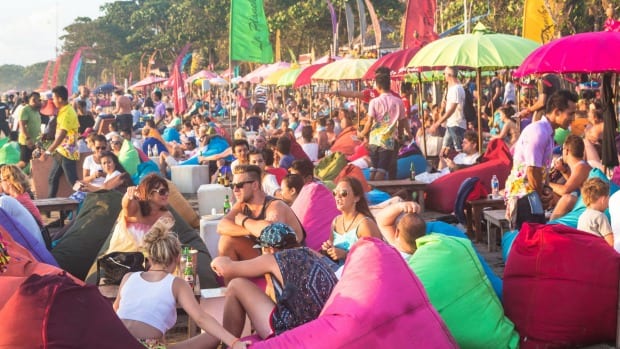
Bali is undoubtedly a beautiful place, boasting good weather and a friendly culture. Located 8º below the equator, its monsoon climate make it an exciting prospect for Australians, who are its most common foreign visitor. They, among other tourists, soon discover how comparatively inexpensive everything is. With high quality luxury resorts available to even modest spenders, it seems to be an idyllic place to spend a hard-earned break. However, as with any country, it’s worth weighing its merits against the weaknesses.
The cost of living in Bali is quite low, making it one of the major considerations for spending some time there. A seasoned expat reminisced on their experiences in 2015, sharing that it costs $365 per month to stay in their relatively high-end studio apartment. From there, accommodation can only get cheaper. However, I’d urge you to consider the reason why this is so expensive and as you might expect, it’s due to the fact that Indonesia is still a developing country. With a GDP of $932.26 billion US in 2016, it doesn’t seem like it’s doing too badly. The Worldbank recognised a 5.3% GDP growth in 2018, up from 5.1% last year. It has seen effective use of monetary policy, greater allocation of funds to infrastructure and improved private sector investment.
Despite all of these advances, Indonesia still struggles with poverty. Even if this doesn’t concern you, it should concern your holiday planning priorities, as many things you might take for granted in the developed world are not present. 162,051 people are living under the poverty line in Bali alone, so unless you’re at a luxury resort like those supplied by Viceroy Bali, you’ll experience first-hand the everyday struggles of its residents. However, this is isn’t necessarily a bad thing. Becoming privy to the inner workings of a culture can be an enlightening, informative experience that could have you considering the nature of life in your home country and how you might contribute to the betterment of theirs. Even if this sort of idealism doesn’t suit you, seeing the best and worst in a country is the surest way to discover its more realistic side away from the glitz and glamour of tourist attractions designed to be pretty and accommodating.
With economic concerns in mind, which can be both a blessing and curse for the wary traveller, what are some of the other considerations in travelling to Bali? For one, its people are famously accommodating. Granted, ‘friendliness’ is a hard metric to empirically measure, but a variety of reputable sources attest to observing in abundance. “Balinese people are warm and friendly,” comments one author from Indonesia Point. Another comments that it’s, “home to some of the friendliest and most welcoming people.” Although this might well be the case all over the country, there is a darker side too.
According to Smart Traveller, the Australian Government travel advice platform, travellers should, “exercise a high degree of caution” overall throughout Indonesia. They warn that some areas are sizeably more dangerous than others, with all travel to Central Sulawesi, Papua and West Papua provinces being so threatening as to advise against venturing there at all; “reconsider your need to travel.” Among the friendly smiles and accommodating populace, terror attacks as recent as May 14th of this year are still an active threat to police and regular citizens alike. Authorities constantly receive fresh intelligence of new terror operations about to be carried out.
Terrorism is a severe threat, but it can be avoided throughout a short stay in the country. Smart Traveller recommends staying as far from political protests and rallies of any kind throughout the duration of your stay, as crowded areas are attractive targets for malicious individuals seeking to deploy explosives. By staying away from these sorts of events, you not only distance yourself from that possibility but also prevent yourself from appearing as though you favour one particular faction or another in a debate you may not fully comprehend. With that said, the terrorist threat level remains high and has remained so since January of 2016. “Attacks could occur anywhere, anytime, including locations frequented by Westerners,” the Australian Government warns.
As grim as this all sounds, it’s still possible to remain safe and have a good time during your trip to Bali. For example, being highly mindfully of your belongings and itinerary goes a long way. If one of the items on your list was attending a religious festival or touring crowded temples, staying away altogether is the safest thing. Electing instead to visit similar sites with lower foot traffic will yield similar results at far less risk to your health. Consider a stroll through Nusa Lembongan and Ceningan in the southeast. Enjoy TengananPegringsingan in the East, or the Water Palaces. These less populated areas will provide you with the rich cultural and natural experiences you’re after without all the crowds and less of the potential danger.
Indonesia’s a great place for many reasons and it’s important not to define it by its problems. If you’re looking to explore Bali and see all the marvellous sites, you can do it so long as you’re mindful. However, if you’re just looking to throw caution to the wind and get drunk on a beach, that’s fine too. Just don’t do it in Bali.
